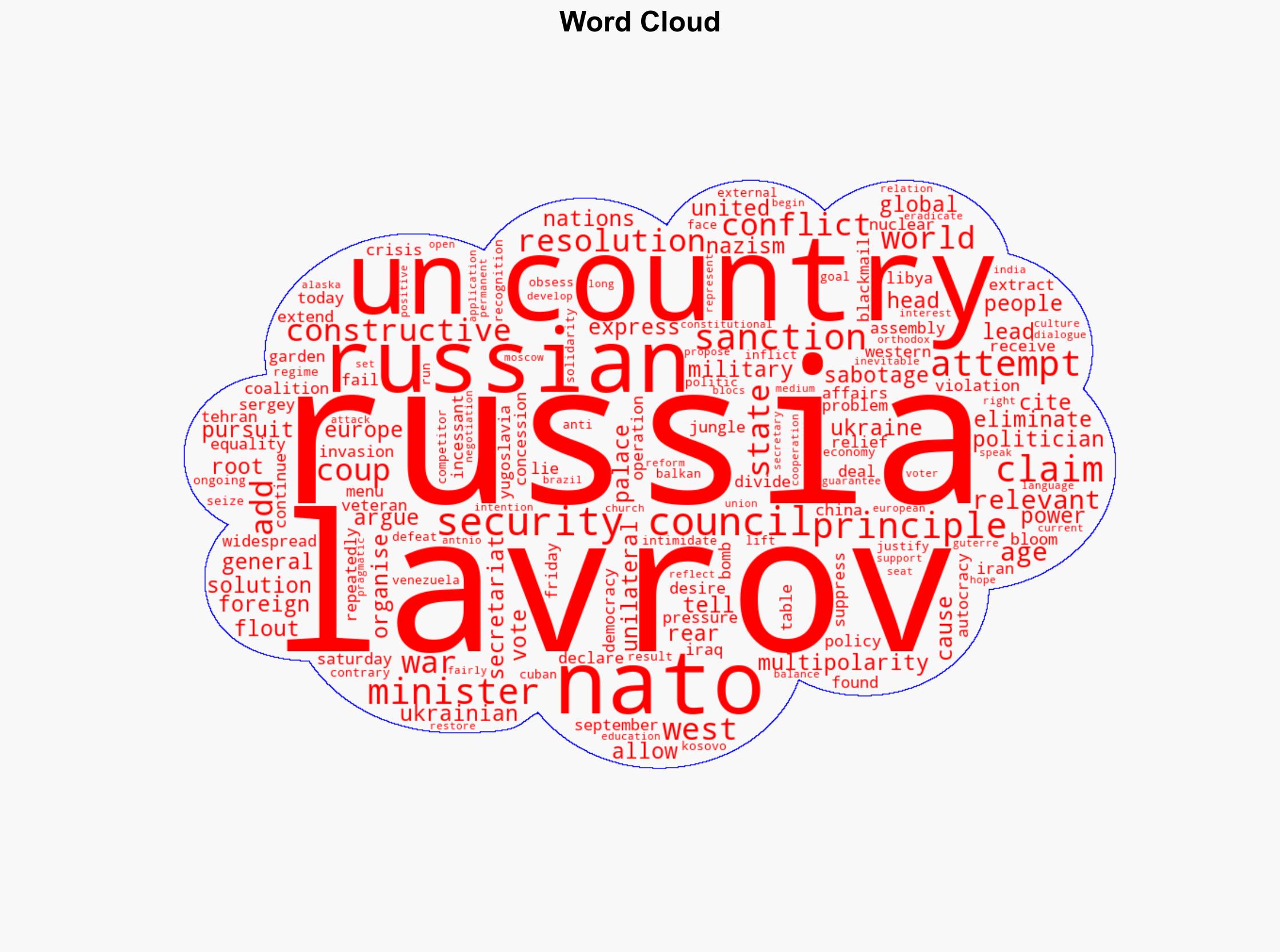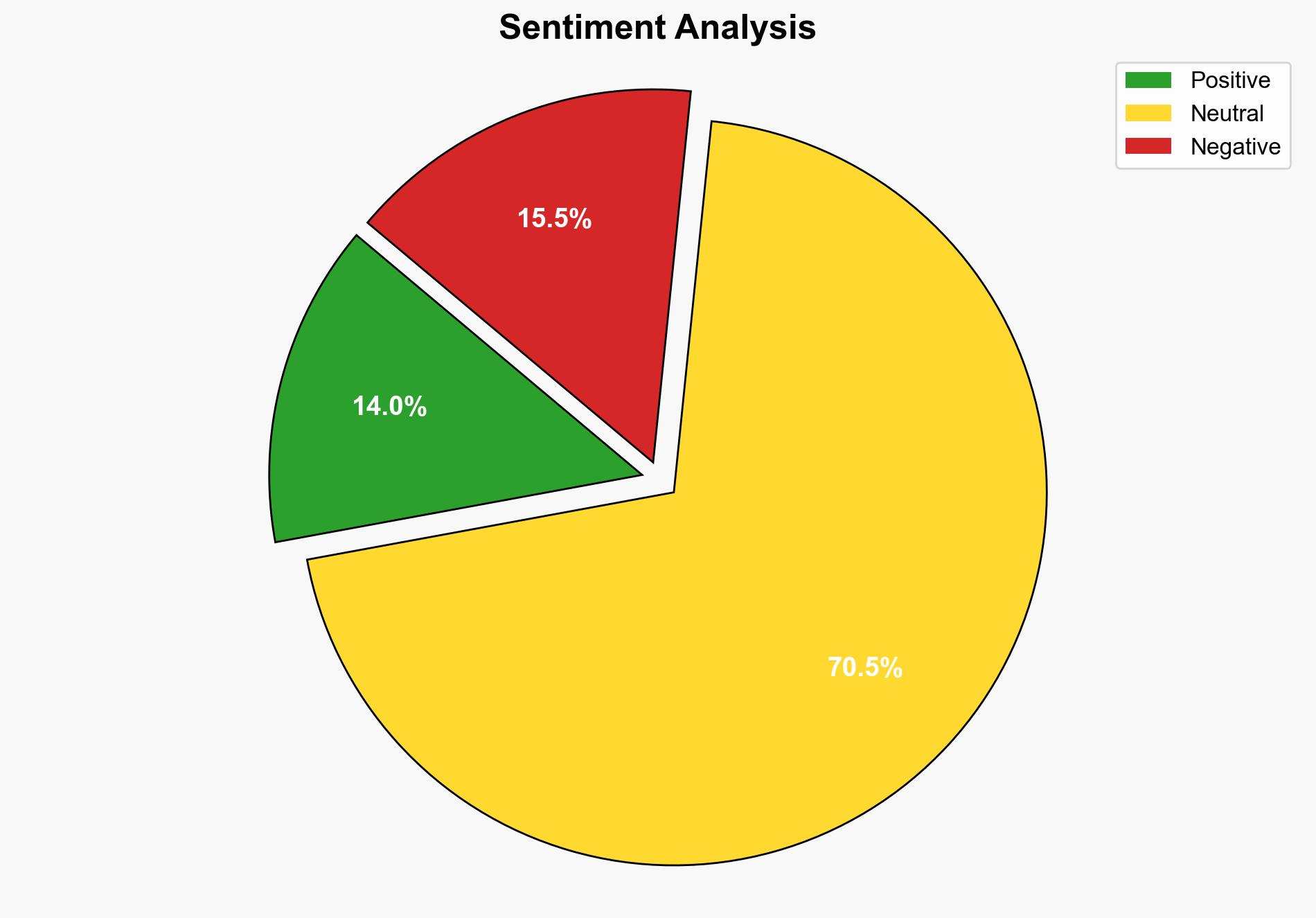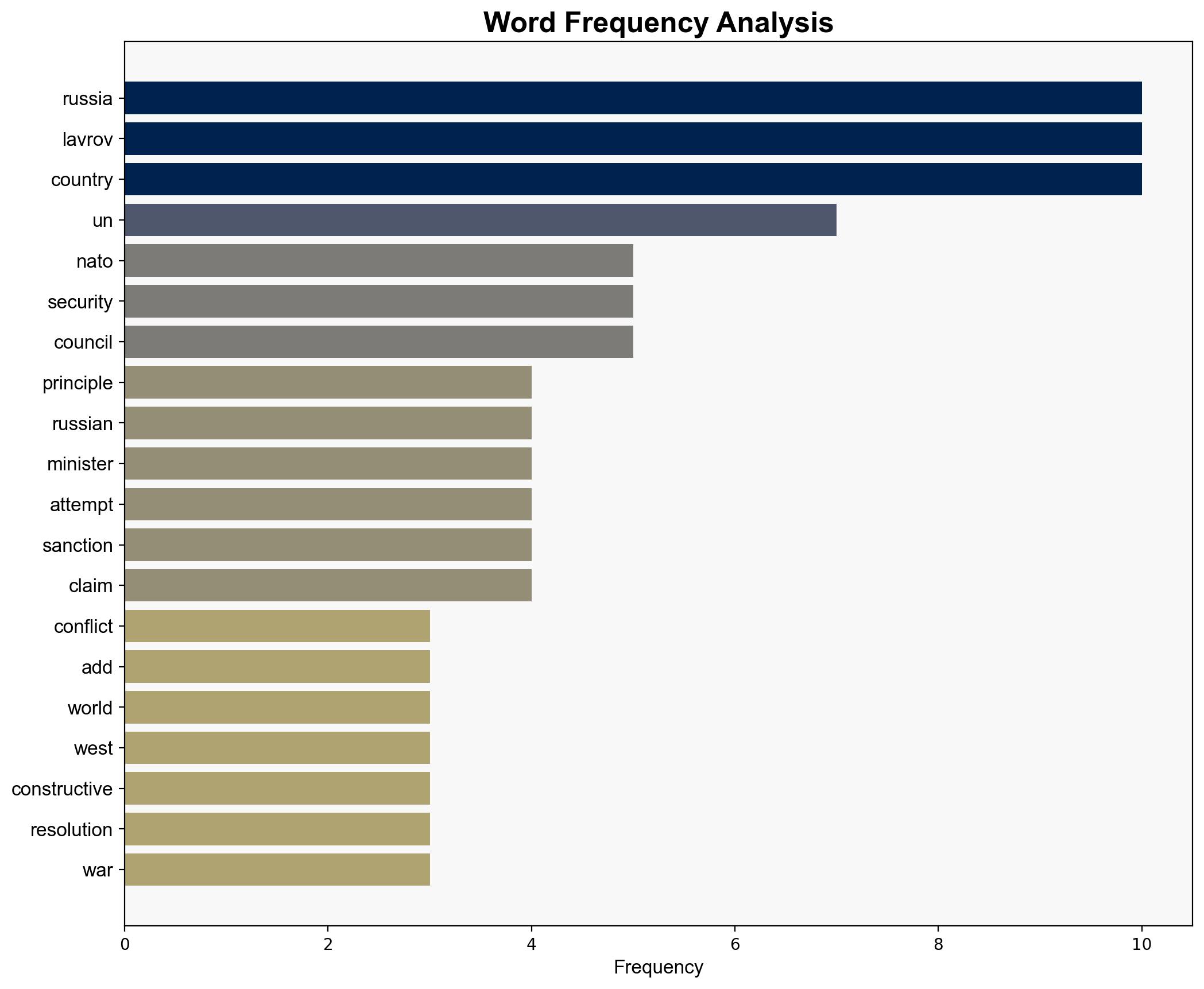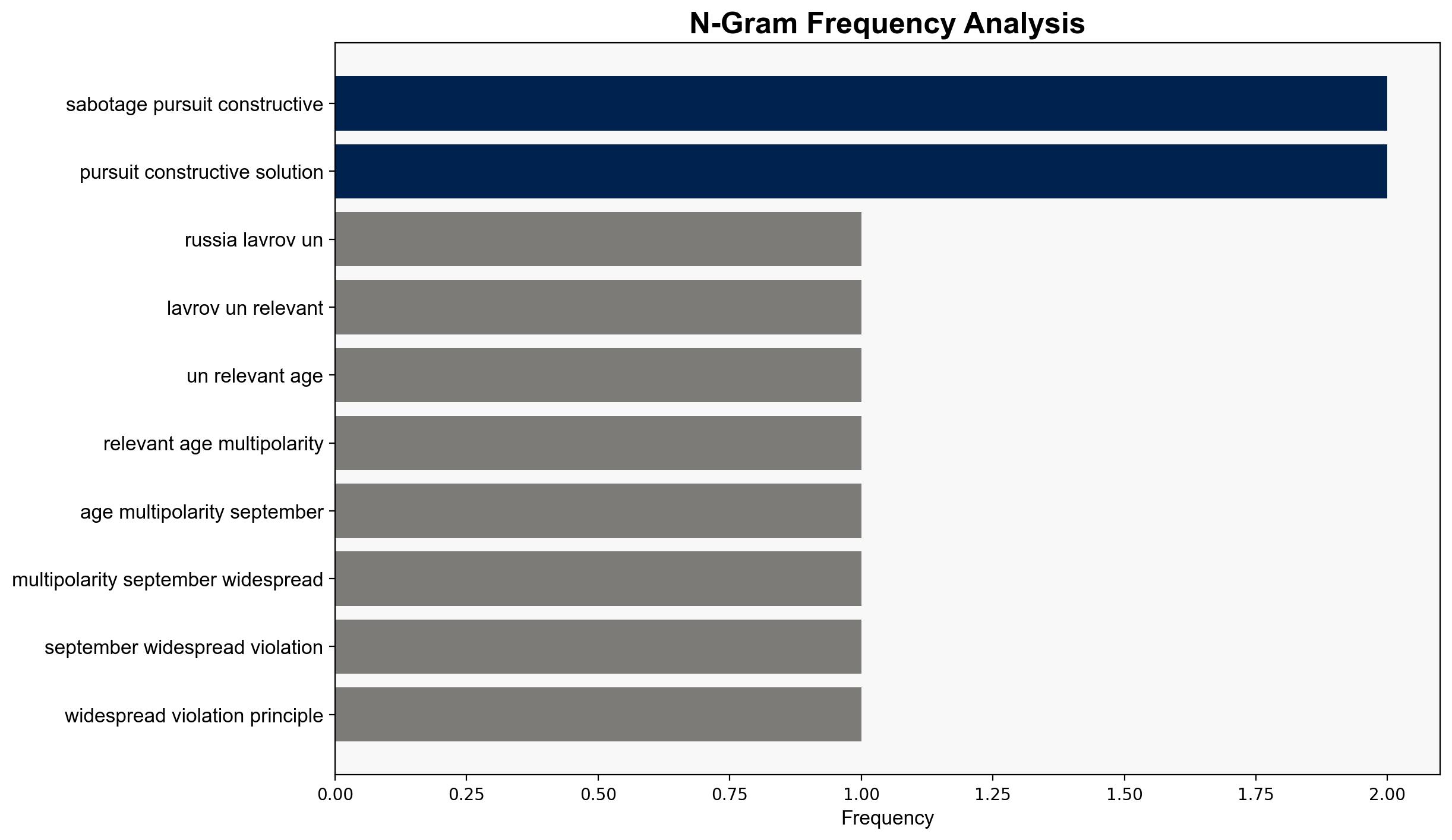Russia’s Lavrov says UN as relevant as ever in ‘age of multipolarity’ – Globalsecurity.org
Published on: 2025-09-28
Intelligence Report: Russia’s Lavrov says UN as relevant as ever in ‘age of multipolarity’ – Globalsecurity.org
1. BLUF (Bottom Line Up Front)
The analysis suggests a moderate confidence level in the hypothesis that Russia is leveraging the concept of multipolarity to justify its geopolitical actions and to challenge Western influence. The recommended action is to monitor Russia’s diplomatic engagements and narratives at the UN, as well as to prepare for potential shifts in alliances and power structures within international organizations.
2. Competing Hypotheses
1. **Hypothesis A**: Russia is genuinely advocating for a multipolar world order to promote global stability and equality among states, using the UN as a platform to counterbalance Western dominance.
2. **Hypothesis B**: Russia is using the rhetoric of multipolarity and UN relevance as a strategic tool to legitimize its actions in Ukraine and other geopolitical arenas, while undermining Western influence and gaining support from non-Western countries.
Using the Analysis of Competing Hypotheses (ACH) 2.0, Hypothesis B is better supported. Lavrov’s statements align with Russia’s broader strategy to challenge Western policies and justify its actions in Ukraine, as evidenced by the emphasis on Western violations and the call for reforms that favor Russia’s geopolitical stance.
3. Key Assumptions and Red Flags
– **Assumptions**: It is assumed that Russia’s call for multipolarity is primarily a strategic maneuver rather than a genuine commitment to global equality. Another assumption is that Russia’s criticisms of Western actions are intended to rally support from non-aligned nations.
– **Red Flags**: The absence of concrete proposals for UN reform from Russia raises questions about the sincerity of its advocacy for multipolarity. Additionally, the focus on Western actions without acknowledging Russia’s own controversial activities could indicate selective narrative framing.
4. Implications and Strategic Risks
– **Geopolitical Risks**: Russia’s narrative could deepen divisions within the UN and other international bodies, potentially leading to a fragmented global governance system.
– **Economic Risks**: Sanctions and counter-sanctions could escalate, affecting global markets and trade, especially if Russia gains support for its stance.
– **Cyber and Psychological Risks**: Russia may intensify information campaigns to influence global public opinion and undermine Western alliances.
5. Recommendations and Outlook
- Enhance diplomatic engagement with non-Western countries to counterbalance Russia’s influence and narrative.
- Strengthen intelligence and monitoring of Russia’s activities and alliances within international organizations.
- Scenario Projections:
- **Best Case**: Russia’s calls for multipolarity lead to constructive dialogue and reforms within the UN, enhancing global stability.
- **Worst Case**: Russia’s actions result in increased geopolitical tensions and fragmentation of international governance structures.
- **Most Likely**: Russia continues to use multipolarity rhetoric to justify its actions, while the UN remains a contested platform for global influence.
6. Key Individuals and Entities
– Sergey Lavrov
– Antonio Guterres
– NATO
– UN Security Council
7. Thematic Tags
national security threats, geopolitical strategy, international relations, UN diplomacy





